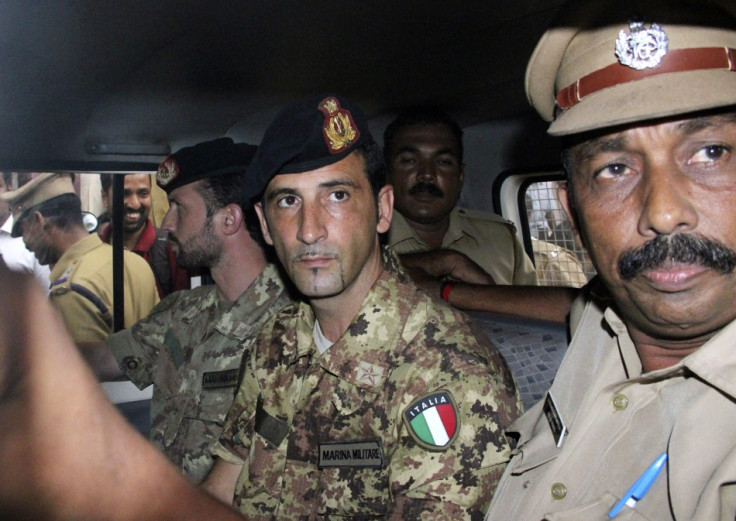Indian Fishermen Deaths Row: EU Condemns Delhi Travel Ban on Rome Envoy
EU high representative Catherine Ashton intervenes in case of Italian marines Massimiliano Latorre and Salvatore Girone

The EU has stepped in to the diplomatic row between India and Italy over two Italian marines accused of shooting dead Indian fishermen off the coast of Kerala, southern India.
EU high representative Catherine Ashton has condemned New Delhi's decision to bar Rome's ambassador from leaving the country until Italy sends the two marines back to face trial.
India's supreme court ordered Italian envoy Daniele Mancini to remain within the country's borders after Rome backtracked on a promise to return marines Massimiliano Latorre and Salvatore Girone.
But Ashton said the Delhi move violated international and diplomatic law.
"Any limitations to the freedom of movement of the ambassador of Italy to India would be contrary to international obligations," an EU spokesperson said.
Latorre and Girone face murder charges on the killing of two Indian fishermen in February 2012.
The suspects were held in India but given licence to return to Italy to vote in the national elections in February and to celebrate Easter. The deal was made on the basis of a written undertaking by Mancini that they would return to stand trial.
Italy announced, however, that it would not send them back.
"We don't trust the envoy any more. We did not expect him to behave like this," said the judges, headed by Chief Justice Altamas Kabir.
Delhi's supreme court claimed that Mancini had waived his diplomatic immunity by reneging on his personal assurance that the suspects would return to India.
"The 1961 Vienna Convention on diplomatic relations is a cornerstone of the international legal order and should be respected at all times," said the EU.
Latorre and Girone were part of a security team aboard a cargo ship when they opened fire on a fishing boat they say they mistook for pirates.
The Italian government said the incident took place in international waters, meaning the pair should be tried in Italy under international maritime law. But India maintains that it has jurisdiction over the case.
"The high representative continues to hope that a mutually acceptable solution can be found through dialogue and in respect of international rules," the EU spokesperson said.
© Copyright IBTimes 2025. All rights reserved.






















